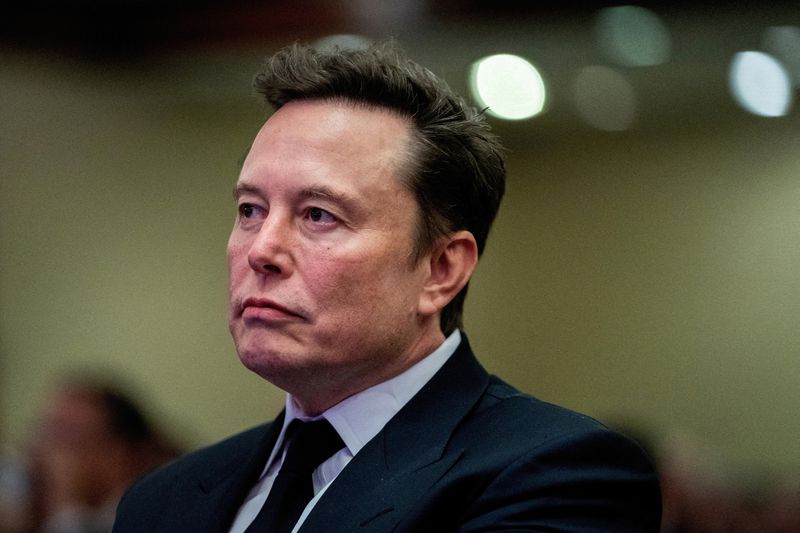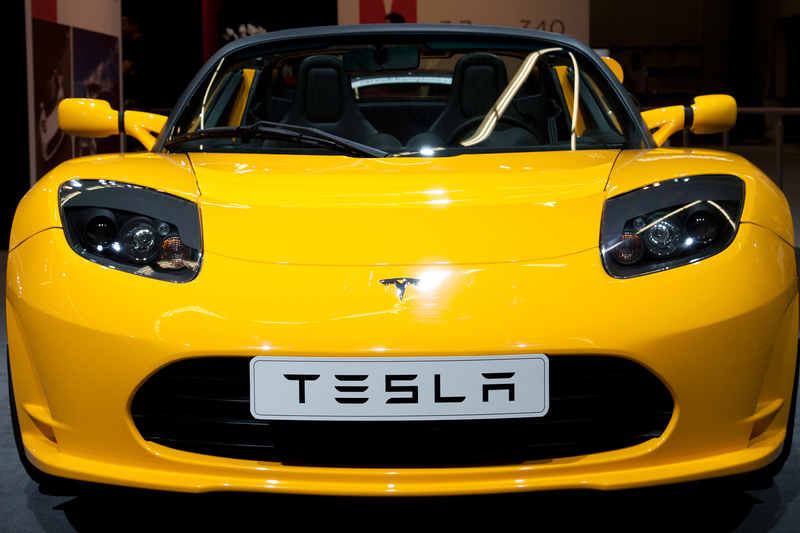By Tom Hals and Jonathan Stempel
WILMINGTON, Delaware (Reuters) – A Delaware judge ruled on Monday that Tesla (NASDAQ:) CEO Elon Musk is still not entitled to a $56 billion compensation package, despite the electric car company’s shareholders voting in June to restore it.
The ruling by the judge, Chancellor Kathaleen McCormick (NYSE:) of the Court of Chancery, follows her January decision in which she called the compensation package excessive and rescinded, surprising investors and creating uncertainty about Musk’s future at the world’s most valuable car manufacturer.
In a post on X after the decision, Musk said that “shareholders should control the company’s votes, not the judges.”
Tesla said in a statement about X: “The ruling is wrong and we will appeal,” adding that the judge had rejected a supermajority of shareholders.
Musk and Tesla could appeal to the Delaware Supreme Court once McCormick issues a final ruling, which could come as soon as this week. The appeal can take up to a year.
Tesla has said in court filings that the judge should recognize a subsequent vote by its shareholders in June in favor of the pay package for Musk, the company’s driving force responsible for many of its claims, and reinstate his compensation.
McCormick said Tesla’s board had no right to press “reset” to reinstate Musk’s pay package.
“If the court were to tolerate the practice of allowing defeated parties to create new facts for the purpose of revising verdicts, trials would drag on interminably,” she said in her 101-page op-ed.
She said a ratification vote like Tesla’s had to take place before the trial and that a company cannot ratify a transaction involving a conflicting controller. She had determined that Musk controlled the wage negotiations.
She also said Tesla made multiple material misstatements in its proxy statement regarding the vote, and could not claim the vote was a “cure” to justify reinstating Musk’s pay.
Tesla shares fell 1.4% in after-hours trading after the ruling.
Gary Black, managing partner of The Future Fund, which owns Tesla stock, said on X that he believed the Delaware Supreme Court was more pragmatic than McCormick. “I doubt this ruling will be resolved anytime soon, and that it will likely be overturned by a more moderate court over time,” he wrote.
The pay package awarded Musk stock options if the company met performance and valuation targets.
Although the award was originally valued at $56 billion, Tesla shares have risen 42% since November 5, when Republican candidate Donald Trump, backed by Musk, won the US presidential election. After that rally, the pay package is worth about $101 billion.
The ruling comes as Musk has been tasked by Trump to create a more efficient government by cutting spending. The role as co-leader of the new Department of Government Efficiency would be informal rather than a government position, allowing Musk to keep his job at Tesla and also run other companies, including rocket maker SpaceX.
Musk threw his weight behind Trump’s election campaign and has become a close advisor.
PAYDAY FOR PLAINTIFF’S LAWYERS
McCormick also ordered Tesla to pay the lawyers who brought the case $345 million, well below the $6 billion they initially requested, but still one of the largest awards ever in securities litigation. She said the compensation could be paid in cash or in Tesla shares.
“We welcome the ruling of Chancellor McCormick, who rejected Tesla’s invitation to inject continued uncertainty into the legal proceedings,” said a statement from Bernstein Litowitz Berger & Grossmann, one of three law firms for the plaintiff.
The law firm also said it looks forward to defending the court’s opinion if Musk and Tesla appeal.
After the January ruling, Tesla shareholders flooded the court with thousands of letters arguing that revoking Musk’s pay raises the possibility that he would leave Tesla or develop certain products such as artificial intelligence at companies other than Tesla.
Mom-and-pop investors and Musk’s influential fans helped Tesla and Musk win the June shareholder vote, and many spoke out on social media against Monday’s decision.
“Beyond the pedantic details of the legal proceedings, the bigger problem here is that the shareholder vote is being overruled,” Omar Qazi said in a post on X of @WholeMarsBlog after Monday’s ruling.
“If they can’t consider the vote in this case, hopefully they will consider it on appeal,” said Qazi, who has more than 551,000 followers.
McCormick found in January that Musk improperly controlled the board’s 2018 process to negotiate the pay package. The board had said Musk deserved the package because he met all the ambitious targets for market value, revenue and profitability.
After the January ruling, Musk criticized the judge on his social media platform
In her January ruling, the judge called the pay package the “largest compensation plan ever – an unfathomable amount.” It was 33 times larger than the next largest executive compensation package, Musk’s 2012 pay plan.

Musk’s 2018 compensation package gave him stock grants worth about 1% of Tesla’s equity whenever the company achieved one of 12 tranches of escalating operating and financial targets.
Musk did not receive a guaranteed salary. Tornetta argued that shareholders were not told how easily the targets would be achieved when they voted on the package.


